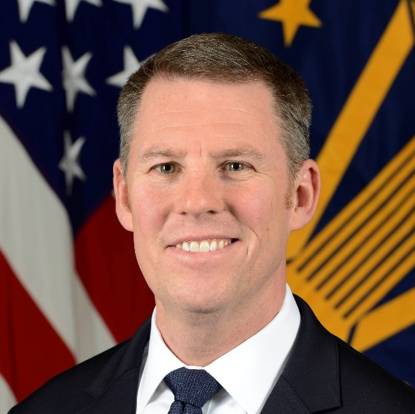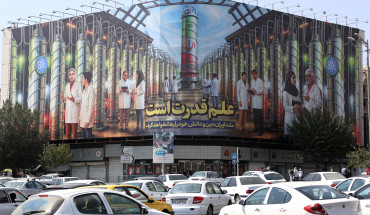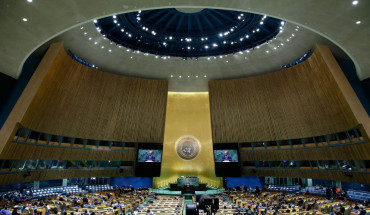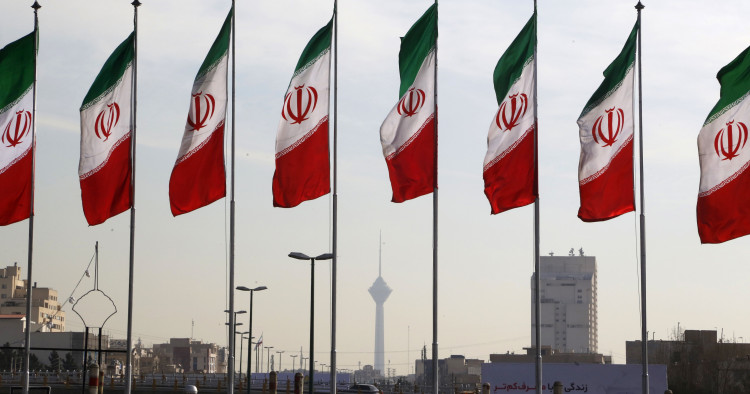Contents:
- A new round of Iranian-Saudi talks
- In Afghanistan and elsewhere, we need to treat our partners better
- The troubled waters of the Gulf
- Russia’s military buildup in the Black Sea will test NATO and the Biden administration
- Dubai to begin importing self-driving cars
A new round of Iranian-Saudi talks
Alex Vatanka
Director of Iran Program and Senior Fellow, Frontier Europe Initiative

Reports about a new and ongoing Iranian-Saudi round of talks hosted by Iraq to find ways to reduce regional tensions have to be welcomed. Iran and Saudi Arabia are the most pivotal players in the Middle East. Proxy rivalry between them has cost the region dearly. A process of détente can reverse some of the havoc the Iranian-Saudi conflict has produced. But it’s too early to be optimistic. Iranian-Saudi talks have been held before, even when relations faced seeming impasse, as they do today, but failed to result in a resolution. A breakthrough requires bold leadership in Tehran and Riyadh. Leaders in both states legitimize themselves at home and in their messages to the world by demonizing the other. Supreme Leader Ayatollah Ali Khamenei taunts the House of Saud as the pawns of Western powers in the region; Crown Prince Mohammed bin Salman famously likened Khamenei to Hitler. Don’t expect a summit between the two men.
Instead, the best hope is that Tehran and Riyadh can agree to an incremental, bottom-up confidence-building process. If so, Yemen represents the most pressing theater for such a de-escalation. Riyadh considers Tehran’s support for the Houthi movement as an existential threat to its national security. When the Saudis intervened militarily in Yemen in 2015, Iran opted to support the Houthis to bleed Riyadh and to pay back the Saudis for their efforts to mobilize the international community against Iran over the latter’s nuclear program. Six years later, there are hawkish voices that no longer see Iran’s goal in Yemen as bleeding the Saudis but rather pushing for a total Houthi victory in that country’s conflict.
Such a victory could provide Tehran with a lasting foothold in Arabia akin to what Hezbollah provides Iran in the Levant. At this point, Iran abandoning such plans for Yemen would require reciprocity from Saudi Arabia. At a minimum, Tehran expects Riyadh not to be a spoiler in U.S.-Iran nuclear talks. Hence, a gradual process of détente is the best that can be hoped for in Iran-Saudi relations. It would above all thwart the hawks in Tehran and Riyadh who need external foes to rationalize their ruinous zero-sum regional calculations.
Follow on Twitter: @AlexVatanka
In Afghanistan and elsewhere, we need to treat our partners better
Mick Mulroy
Non-Resident Senior Fellow and Co-Director of the Yemen Steering Initiative

With the decision to withdraw all forces from Afghanistan by Sept. 11, 2021, it is important to look at what we have accomplished and what we stand to lose.
The United States and our coalition partners liberated a country from the grips of the Taliban, which protected al-Qaeda, the group that attacked us in 2001. According to the World Bank, Afghanistan’s GDP rose from around $4 billion in 2002 to almost $20 billion in 2019. We also brought power, clean water, and education to millions.
While it is understandable to want all our forces to come home, it should not be at the expense of losing what we have fought so hard to gain. Over the last few years, we significantly reduced our presence in Afghanistan; we reduced the risk to those serving in that country and the associated expenses.
Repositioning our counterterrorism capabilities outside of the country will significantly reduce our ability to collect intelligence, conduct unilateral operations against direct threats to our homeland, protect our diplomatic mission in Kabul, and support our Afghan partners.
As our bases shut, many will likely be taken over by the Taliban. They will undoubtedly take retribution against those that worked with us. We have an obligation to help protect these individuals. We need to rethink keeping the cap of refugees allowed into the U.S. at 60,000, as we may have created a situation where these people’s only option is to seek refuge in our country.
As someone who spent almost my entire career fighting along with partner forces in international conflicts, including Afghanistan, I believe we have to do better when it comes to how we treat our partners. Whether it is in Syria or Afghanistan, our reputation as a nation depends on it.
Follow on Twitter: @MickMulroy
The troubled waters of the Gulf
Banafsheh Keynoush
Contributor

Thousands of catfish perished in the Gulf in April on the shores of Jask, a city in Hormozgan Province in southern Iran. No reason has been identified for the loss of nearly six tons of fish, and environmental groups have determined that the fish died well before being washed to shore.
Different theories are being tested to explain this huge environmental catastrophe. Initially, it was thought it could be due to oil contamination, but that theory was rejected after experiments were carried out. Experts now claim that the likely reason was that boats carrying the fish capsized. It is not uncommon for old boats, often used by local fishermen, to capsize due to over-fishing. Two recently collapsed while out to sea to catch fish, which is exported to Pakistan at a modest price of 130,000-150,000 rials per kg (around $0.50-0.60 at the current market rate).
But thousands of fish also washed ashore earlier in March, this time at Asaluyeh in Bushehr Province, an energy hub in Iran that also happens to house a large nuclear power plant. As in April, experts initially blamed the death of the fish on oil contamination, but then rejected the idea a week later. Environmental activists continue to point to pollution as a potential cause, however, due to the construction of oil platforms and refineries, as well as local tourism and military activities. Some activists say the area has a pollution rate around 47 times what is considered healthy for humans and marine life.
This problem is not a new one. More than a decade ago, activists warned that an environmental disaster in the Gulf could soon lead to a human catastrophe as bad as Chernobyl. While some of the pollutants in the Gulf are industrial and agricultural, many contain radioactive material. This harms the economy in Bushehr and Hormozgan provinces, which traditionally rests in part on the local fishing industry.
In response, Tehran says it is important to keep building heavy industries on Gulf shores to generate new employment opportunities for the local community. It also blames its Arab neighbors in the southern Gulf for causing some of the pollution by building artificial islands and other industrial-scale developments and desalination projects, as well as for the frequent passing of oil tankers that carry some 25% of the world’s hydrocarbon resources through the waterway.
To address the problem, Iran and its Gulf neighbors should hold regular talks, carry out efforts to build greater environmental awareness, and empower the Regional Organization for the Protection of the Marine Environment, based in Kuwait, by upholding its regulations, protocols, and conventions.
This Thursday, April 22, is Earth Day. For more MEI content on environmental issues and climate change, please visit our special MEI Climate Week and Earth Day pages.
Russia’s military buildup in the Black Sea will test NATO and the Biden administration
Iulia-Sabina Joja
Senior Fellow, Frontier Europe Initiative

Over the last few weeks, Ukraine and its Black Sea neighbors have witnessed a startling buildup of Russian military capabilities in the region — the largest since the annexation of Crimea in 2014. The media has primarily focused on Russia’s 40,000-50,000 land forces in and around the Donbas region, but Moscow has also amassed another 40,000 troops in annexed Crimea and transferred 15 warships from the Caspian Flotilla to the Black Sea Fleet. Most recently, Moscow has resorted to escalatory measures, announcing the closing of the Kerch Strait and the Azov Sea to foreign ships, cutting off Ukraine’s ability to export.
As in 2014, Russia’s current intentions remain unclear. Though a large-scale military escalation seems unlikely, it cannot be ruled out. Russia appears to have intended the mass movement of personnel and equipment to be visible rather than covert. Previous Russian military aggression in Georgia in 2008, in Ukraine in 2014, and in Syria in 2015 was based on prior military drills. Moscow has pointed the finger mostly at Ukraine, threatening “a military solution in Donbas” following Ukraine’s imposition of sanctions on Russia-backed Ukrainian oligarch and politician Viktor Medvedchuk, suggesting Moscow is once again resorting to a military response as Kyiv’s political leadership pushes for integration into NATO. Russia has also justified the increased military drills as a response to alleged NATO plans to move forces closer to its western border.
In response to Moscow’s military buildup and threatening rhetoric, the West has reacted with warnings and invitations to dialogue. The U.S. European Command recently raised its alert level. Both Secretary of State Antony Blinken and Defense Secretary Lloyd Austin travelled to NATO headquarters in Brussels. However, the Pentagon has canceled plans to send two destroyers to the Black Sea. President Joe Biden called for de-escalation when he spoke by phone with Vladimir Putin on Tuesday, much like French President Emmanuel Macron and German Chancellor Angela Merkel. G7 leaders joined the EU’s high representative in a statement calling on Russia to cease provocations and engage in the OSCE process to deescalate tensions.
But Russia’s aggressive rhetoric and actions are also targeted at containing what it sees as NATO’s encroachment, as Ukrainian President Volodymyr Zelensky is calling for Ukraine’s NATO membership. Some analysts believe the moves are an effort by Putin to reassert his ability to affect world affairs, or else a signal to the new U.S. administration and a test of its resolve. In this context, Turkey, which is at odds with the Biden administration over its acquisition of Russia’s S-400 missile defense systems, has sided with NATO and Ukraine, and Turkish President Recep Tayyip Erdoğan recently expressed support for Ukraine’s NATO membership and blessed bilateral military cooperation. In response, the Kremlin has restricted flights to Turkey, effectively sanctioning its tourism industry.
To prevent further escalation of the crisis, much will depend on the Biden administration. Though the focus has been on Ukraine, containment of Russia will be down to how the West handles its response politically. In the short term, NATO will need to take a clear position when it comes to Ukraine and Russia, but that will be difficult to reach, given member states’ varying threat perceptions and economic ties with Russia. In the long run Russia’s current military buildup can serve as a source of lessons learned and an assessment of military capabilities, and it will also impose a reassessment of Russian deterrence for both NATO and the West.
This article was co-authored by Dan McCormick, research assistant to the Frontier Europe Initiative.
Dubai to begin importing self-driving cars
Michael Sexton
Fellow and Director of MEI's Cyber Program

Cruise, a San Francisco-based self-driving car company backed by General Motors and Honda, has reached an agreement with the Dubai Road and Transport Authority to exclusively provide self-driving fully electric taxis to the emirate through 2029. The agreement is the first expansion of Cruise’s operations outside the United States. Cruise tests its cars in San Francisco, but has not yet begun offering its “robotaxis” to the American or global markets.
The first Cruise taxis are expected to arrive for testing in 2023, and Dubai plans to import 4,000 vehicles by 2030, but it is not known when the vehicles will be made available to the public. Dubai plans to convert 25% of trips to self-driving vehicles by 2030.
Studies show that self-driving cars, deployed en masse, can significantly reduce traffic congestion, whether they are working cooperatively in coordination with one another or merely individually adjusting speed and steering by observing other vehicles’ movement. Streets fully occupied by self-driving cars in communication with one another may even eliminate the need for traffic lights. The increased traffic efficiency alone may reduce fuel consumption (although some experts worry the attractive convenience and ensuing popularity of such cars may counteract that). Coupled with the fact that most autonomous vehicles — including Cruise’s — are electric, self-driving cars could be a powerful tool in reducing greenhouse gas emissions.
The greatest obstacle to the adoption of self-driving vehicles has been concerns and ambiguity about their safety. Their improved accuracy, prediction, and response time (and inability to be intoxicated) will not entirely eliminate crashes, but may reduce them by as much as a third. Notoriously, though, a self-driving Uber test vehicle in March 2018 failed to properly identify a jaywalker, striking and killing her, and sparking an investigation by the U.S. National Transportation Safety Board. And self-driving cars, which are necessarily internet-connected, are also inherently susceptible to hacking. While not a panacea, the widespread adoption of self-driving cars can be an impactful force for public safety — particularly in the UAE, where road injury is the second highest cause of death.
Follow on Twitter: @MikeESexton
ATTA KENARE/AFP via Getty Images
The Middle East Institute (MEI) is an independent, non-partisan, non-for-profit, educational organization. It does not engage in advocacy and its scholars’ opinions are their own. MEI welcomes financial donations, but retains sole editorial control over its work and its publications reflect only the authors’ views. For a listing of MEI donors, please click here.













